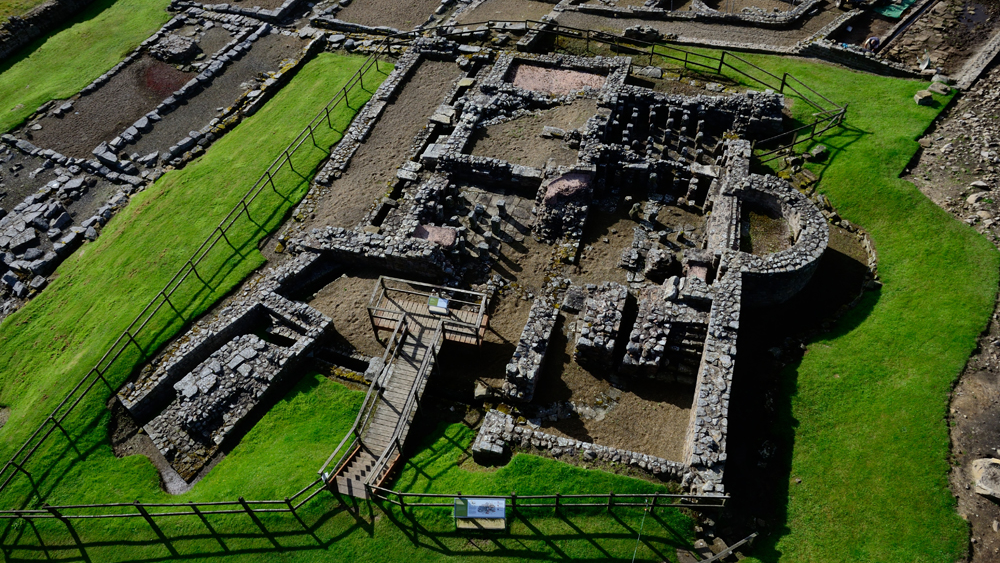Gallery: Unique Life at Antarctic Deep-Sea Vents
Antarctic Black Smokers
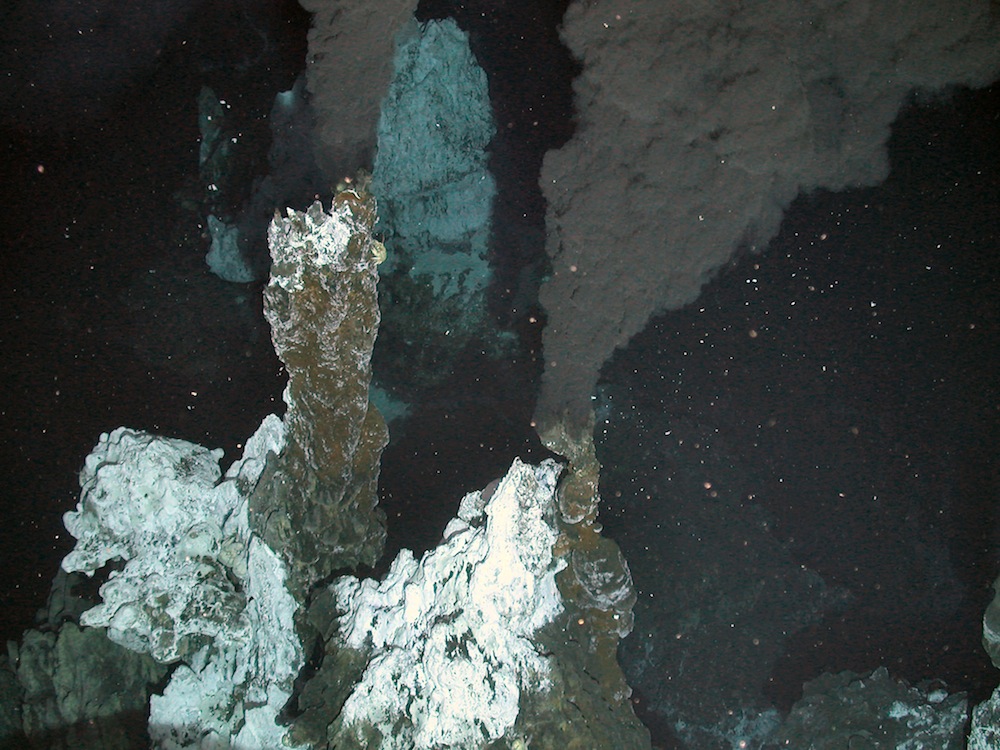
A first glimpse at black smokers on the Antarctic sea floor. These hydrothermal vents contain compounds that make the ultra-heated water they spew out smoke-colored. [Read about the vents here]
Anemones and Barnacles
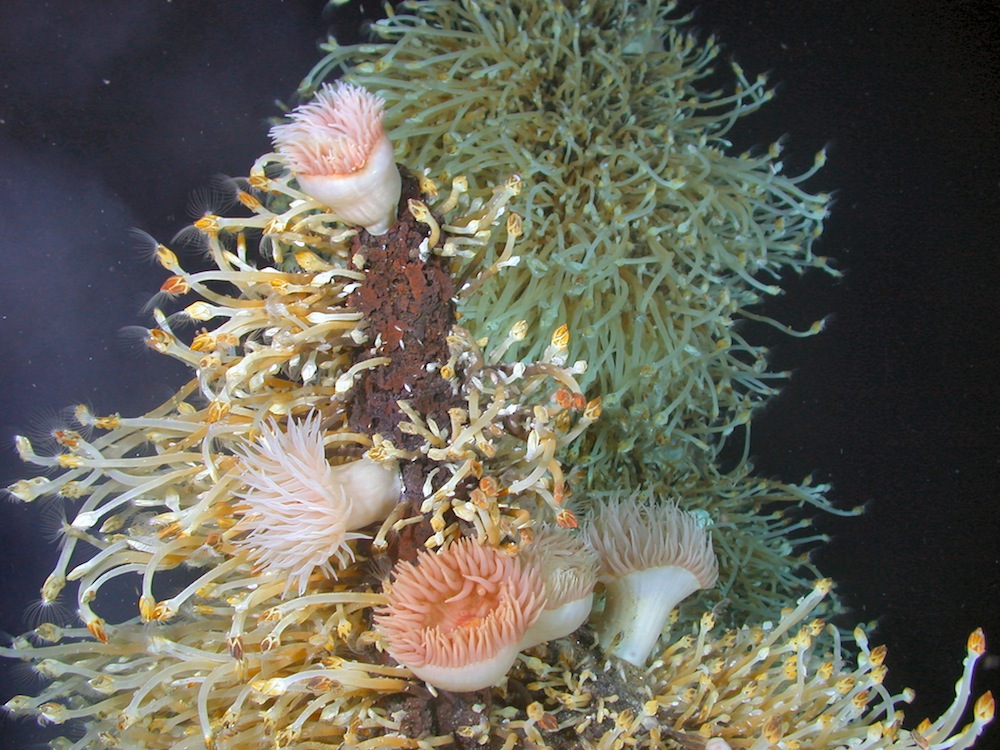
The vents host an astounding amount of life, including bacterial mats, anemones and barnacles not known to science.
Warm-Water Haven
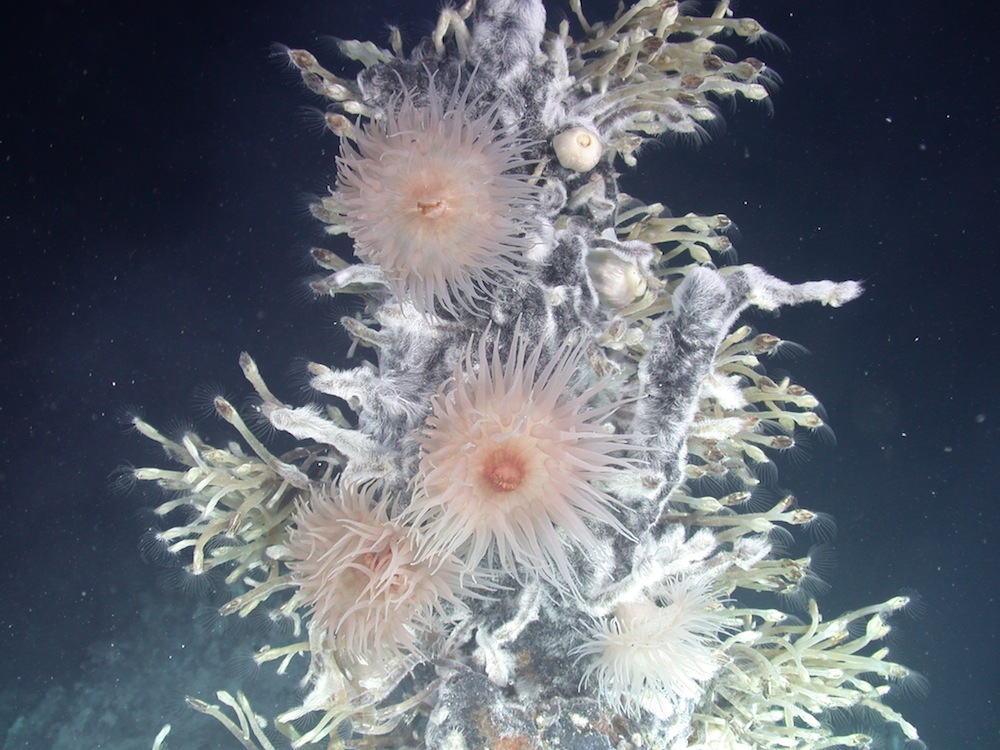
Anemones and barnacles thriving in warm vent waters.
Isis ROV
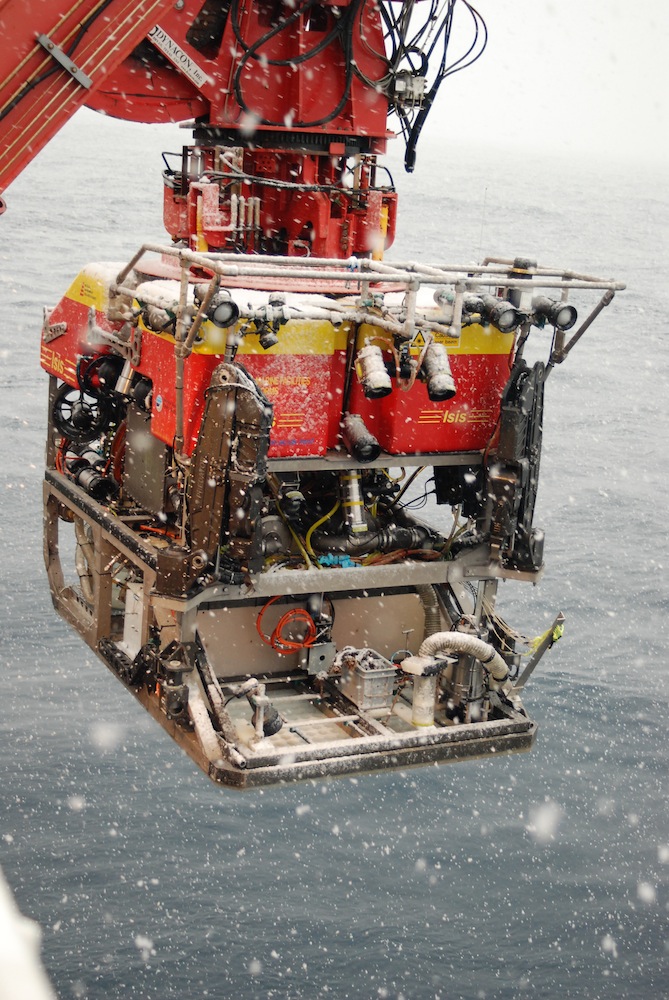
The Isis remotely operated vehicle (ROV) in an Antarctic snowstorm. The ROV brought back video and samples from the vents.
Isis Returns
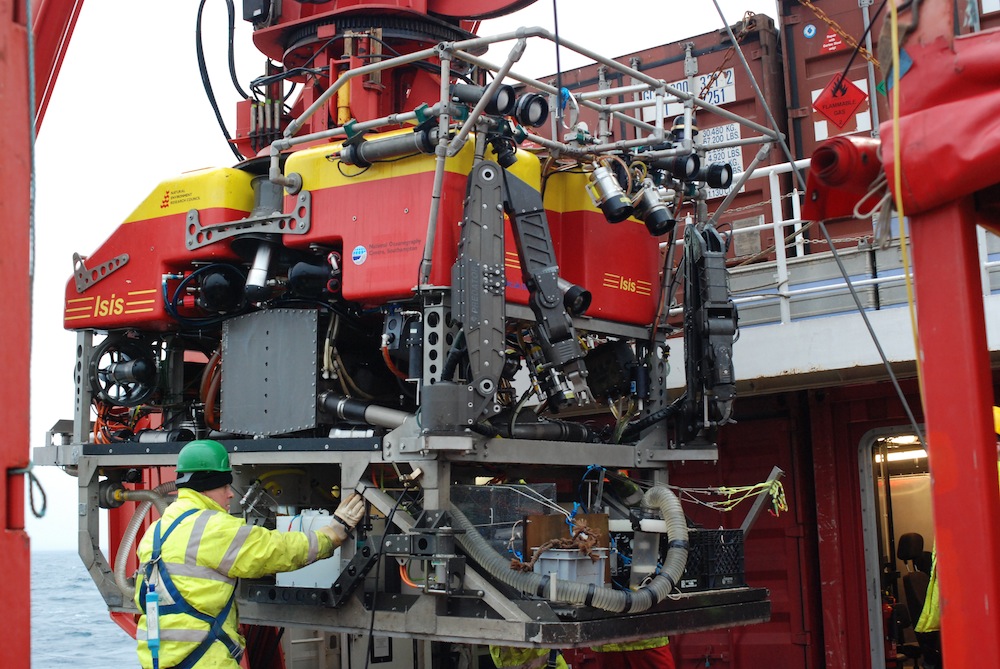
Isis returns to the surface with samples.
Stormy Seas
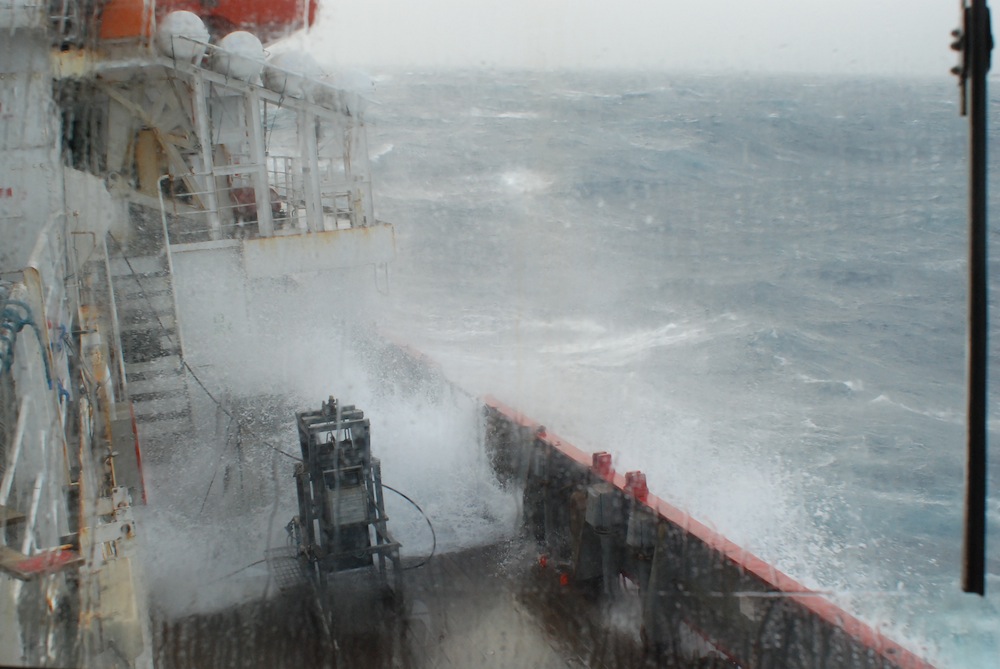
A storm batters the research ship in the Antarctic Ocean. Weather like this is one reason that Antarctic vents have not been studied as much as vents in more temperate areas.
Control Room
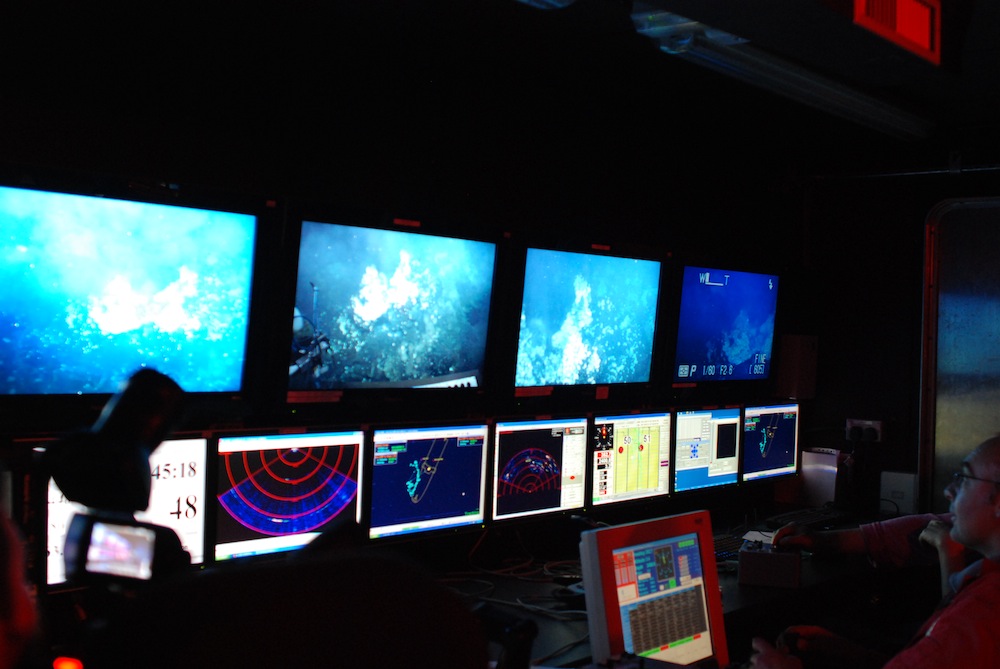
Researchers in the ROV control room peer at undersea images sent up by Isis.
Get the world’s most fascinating discoveries delivered straight to your inbox.
Crab Chimney
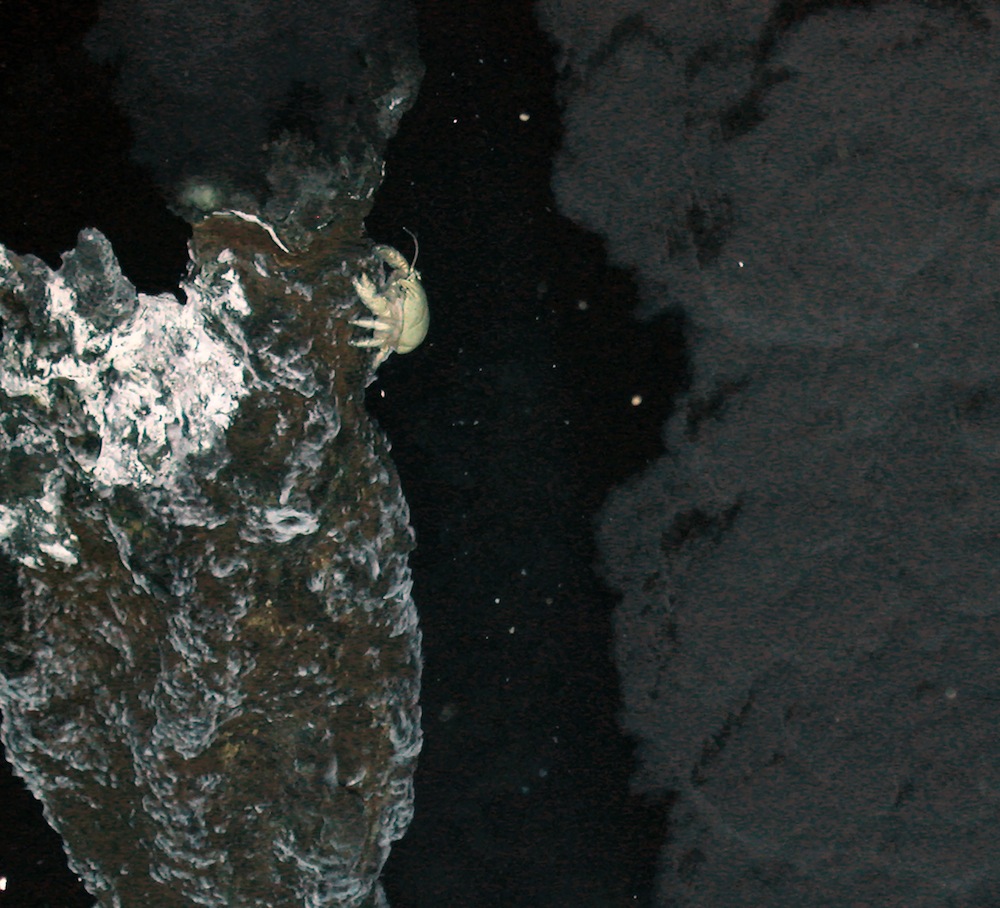
A new species of yeti crab clings to a hydrothermal chimney. The crabs have tendrils on their chests stocked with bacterial mats that they likely "garden" for food.
Crab and Snails
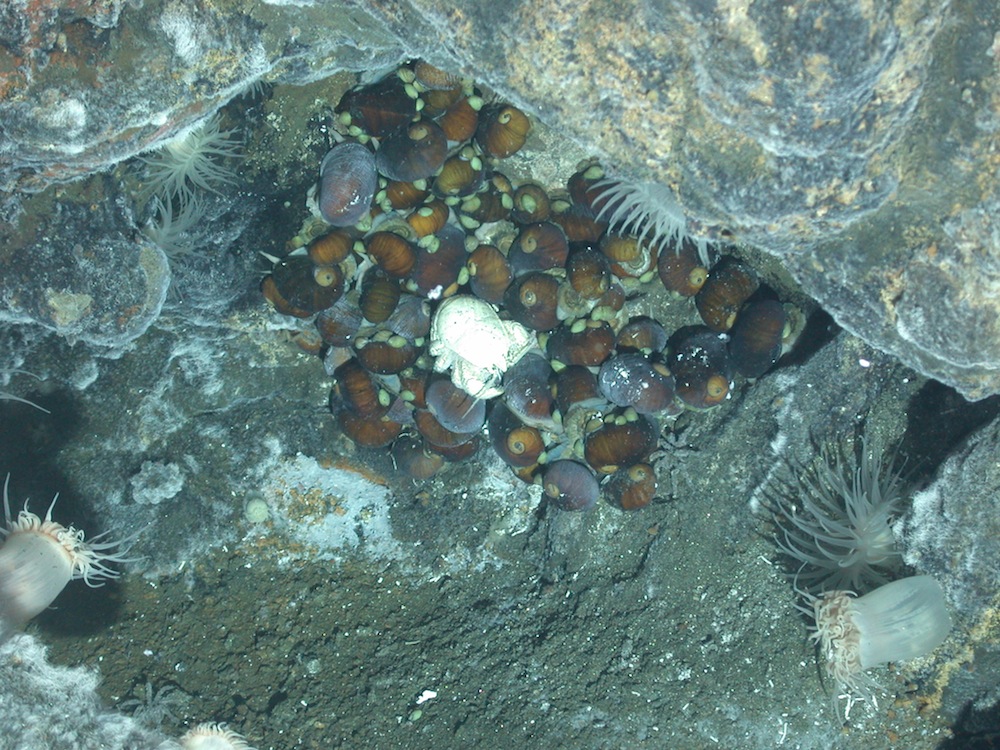
A yeti crab nestled amidst a group of brown snails. These pelotspiroid gastropods are likely a previously unknown species.
Crabs and Barnacles
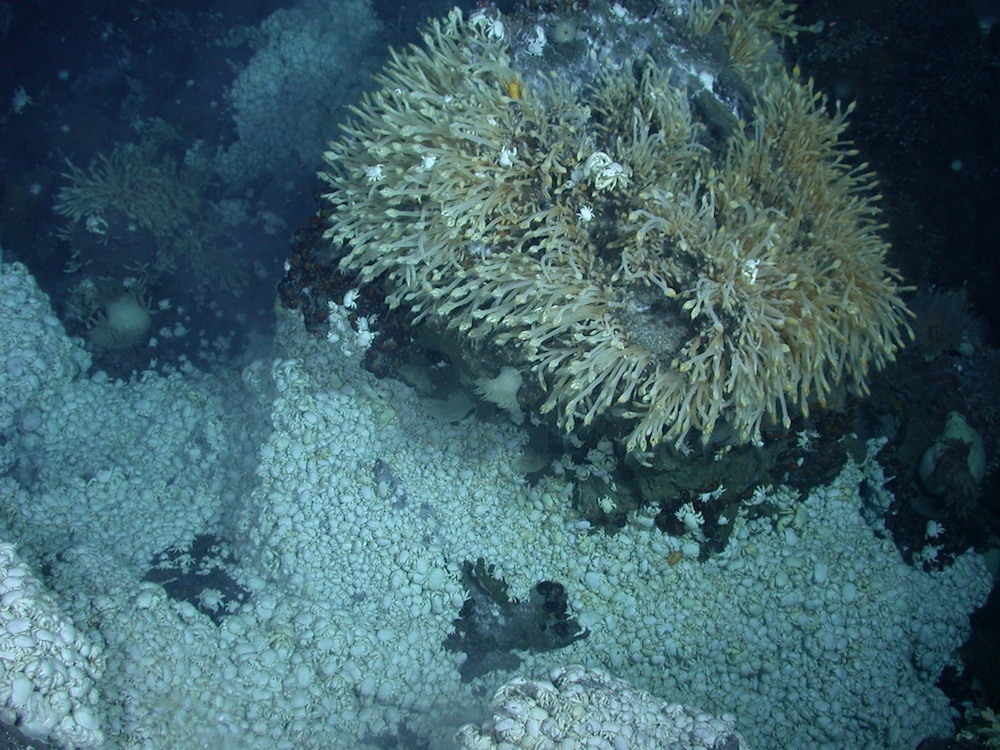
Barnacles and yeti crabs dominate the landscape near the vents.
Lone Crinoid
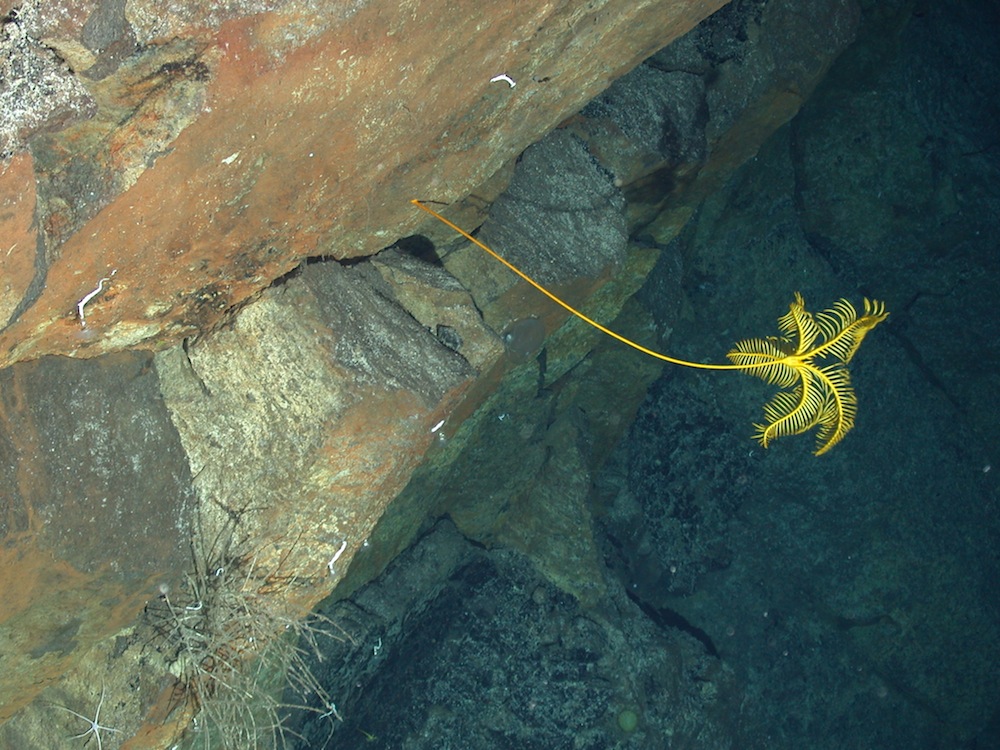
A crinoid clings to an area dubbed "Devil's Punchbowl" near a hydrothermal vent. Crinoids are filter-feeding marine animals.

Stephanie Pappas is a contributing writer for Live Science, covering topics ranging from geoscience to archaeology to the human brain and behavior. She was previously a senior writer for Live Science but is now a freelancer based in Denver, Colorado, and regularly contributes to Scientific American and The Monitor, the monthly magazine of the American Psychological Association. Stephanie received a bachelor's degree in psychology from the University of South Carolina and a graduate certificate in science communication from the University of California, Santa Cruz.


